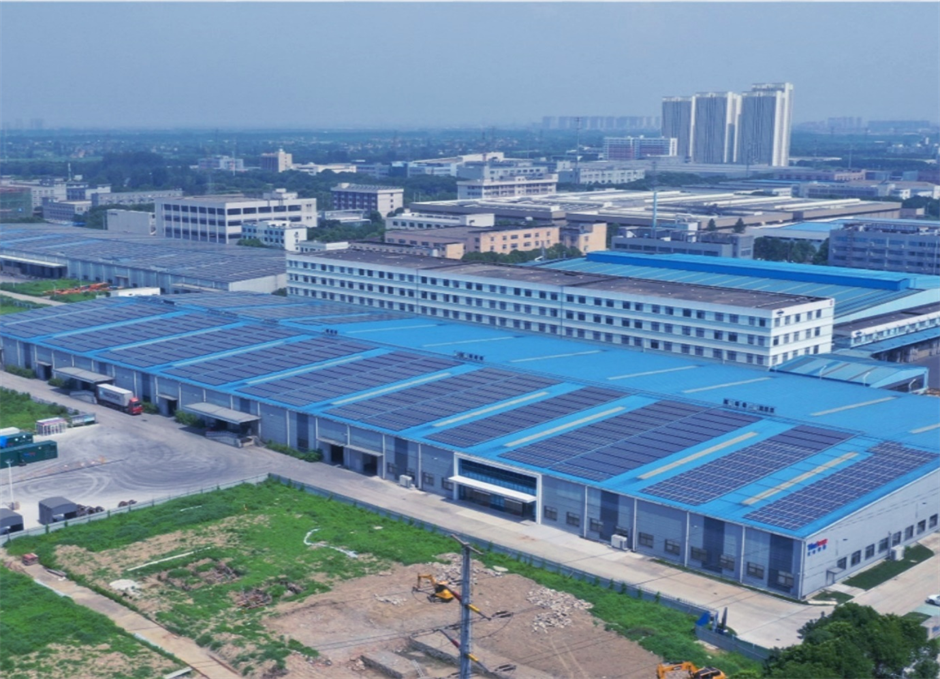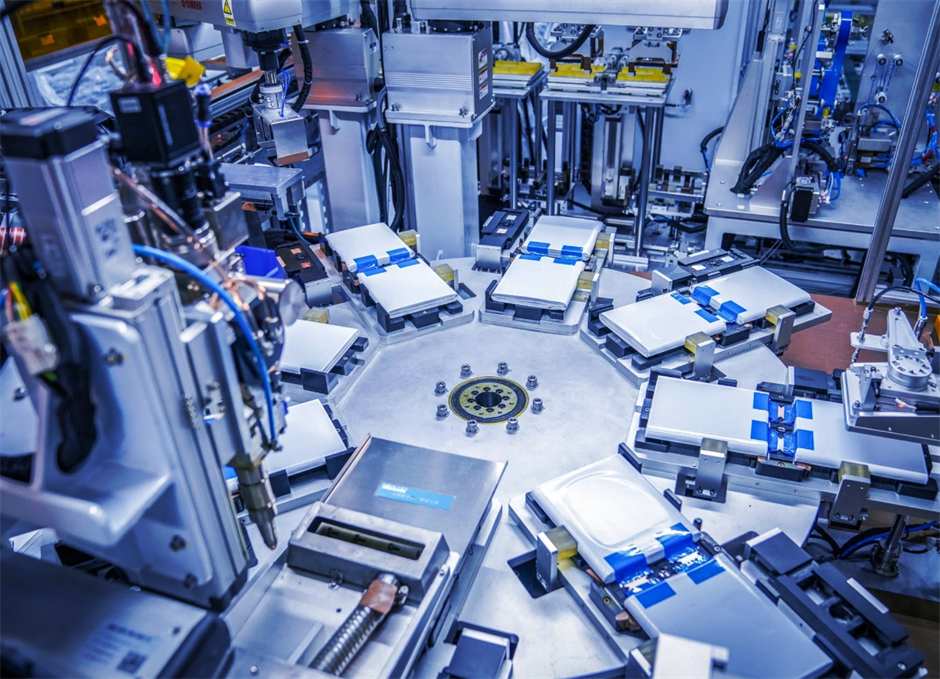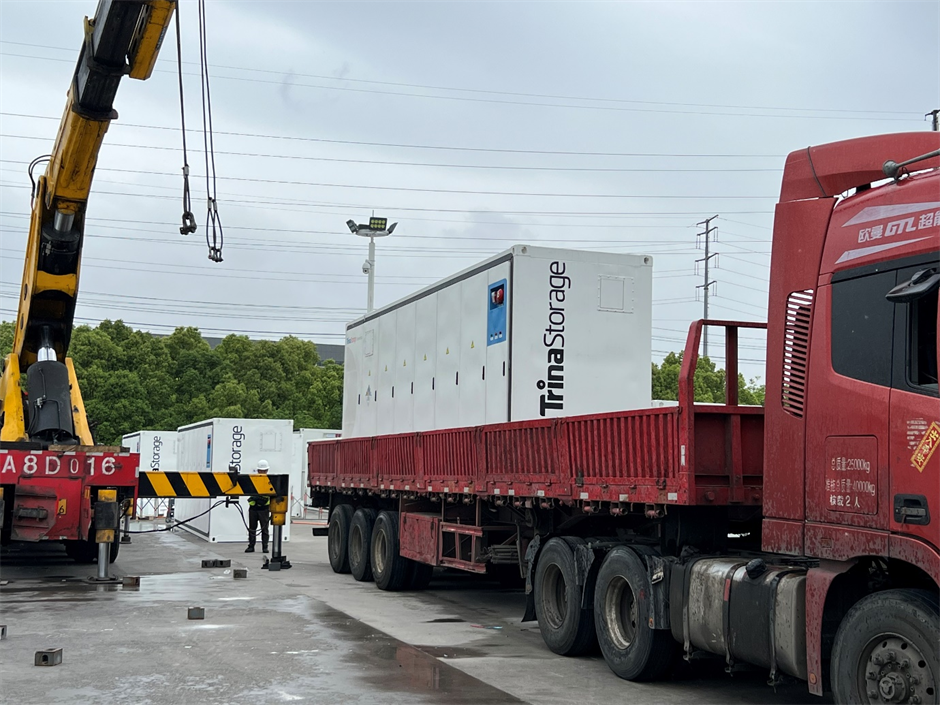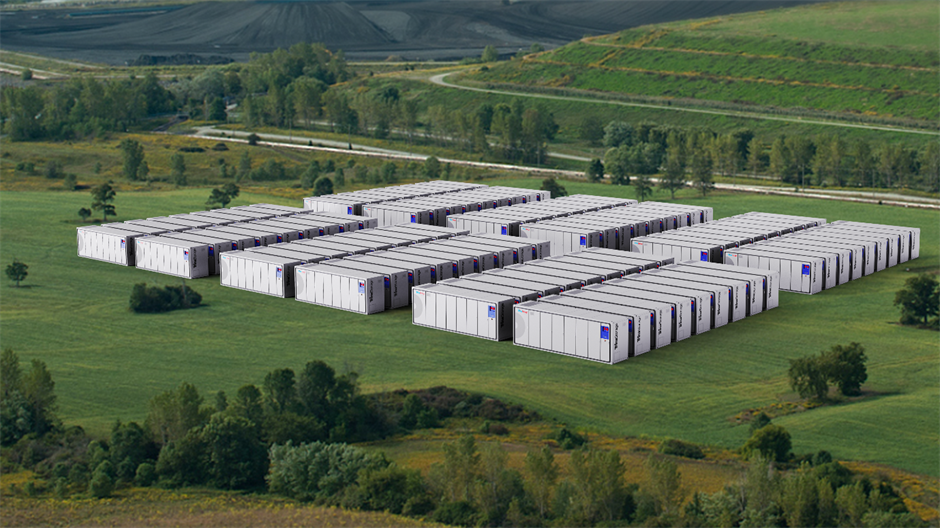Achieving BESS Project Success With Vertical Integration Strategy
- 23/06/28
- Energy Storage
As the demand continues to shift towards renewable energy powering European nations, and the grid networks continue to grapple under that pressure, the importance of Battery Energy Storage Systems (BESS) has never been as pertinent as it is now. The rise in demand is, consequently, seeing differing approaches to supply in industry which only heightens the risk of integrative success, given the inherent complexity of supply chain management of BESS projects.
It’s typical that more control and fewer variables equates to lower project risk and in this article we’ll demonstrate how that’s possible with Trina Storage’s approach.
The complex nature of energy storage projects
Energy storage projects are inherently more complex than more commonly ‘self-integrated’ renewable energy projects, like solar farms for example, due to the fusion of chemical and electromechanical systems at play and the number of third-party components required to integrate with. This complexity is intensified by the need to continuously manage and communicate battery cells’ state of health to other controllers throughout the system leveraging BMS technology.
On top of that, the voltage, active power and reactive power must be managed at the Point of Connection. Energy storage systems are fast-responding and bi-directional, acting as both a generator and a load, making them indispensable tools for grid operators managing voltage and frequency irregularities caused by variable renewables and thermal asset retirements, but it also adds to the system complexity.
This then favours the vertically integrated approach, which refers to the operating strategy that a single company deploys including (but not limited to) pre-sales consultancy, design, deployment, system integration and site acceptance test.
This approach allows the company to manage and control aspects of the project that would otherwise add an unnecessary risk by using third-party suppliers, including the manufacturing and integration of components like batteries, power conversion systems, and energy management systems.
How to overcome integrative complexity
At Trina Storage, we believe that the true value of a well-integrated Battery Energy Storage System lies in its organic design, testing, and connection protocols. As our Head of Overseas Storage Business, Terry Chen, emphasised in a recent interview with Energy Storage News: "all of those technologies need to be organically designed and tested and also connected, otherwise they cannot work properly."
Trina Storage’s focus is on capturing the full economic and technical benefits for our customers right from the get go. For example, our expertise in energy management systems (EMS) enables us to achieve greater standardisation and reduced customization across projects, ensuring optimal performance and efficiency.
Chen also highlights the importance of having deep technical knowledge, particularly in cell technology, stating: "If you don’t have that deep understanding of the technology, especially the cell technology, you [effectively] don’t know how to integrate into the system." We recognise the significance of this understanding for successfully integrating various elements into a comprehensive system.
The efficiency and reliability of BESS can, essentially, be boiled down to two critical aspects:
- the quality of the system components
- the effectiveness of their integration
Having overarching control of this dual-competency, by working towards Original Equipment Manufacturer (OEM) status for battery cell technology, and as experienced system integrators helps to deliver a superior, vertically integrated solution to our clients.

BESS system integrator responsibilities
Comprehensive design for success
The first objective of an integrator involves understanding and analysing specific project requirements, assessing the impact of the requested load profile on battery degradation, performance, availability, and safety, and designing the ideal battery configuration to maximise Return on Investment (ROI).
Trina Storage excels in this role by having a multidimensional approach that includes various aspects like electrical, mechanical, safety, standards and compliance, and scheduling. The company also ensures seamless communication between every piece of equipment, a crucial requirement for the smooth operation of the BESS.
Deliver with minimum supply and installation risks
The management of the logistics of the different equipment up to the site, including the respective Factory Acceptance Tests (FAT). Trina Storage leverages its strong, stable, and diversified supply chain networks to mitigate this supply risk, ensuring that the timelines are met and the BESS's functionality is in line with expectations.
Ensure better battery performance for maximum return
The final objective of an integrator, 'Ensure Better Battery Performance,' is the commitment to ensure optimal system performance over the entire project lifetime. This includes maintenance of the BESS and adherence to warranties. Trina Storage steps up to this challenge, offering long-term performance commitments and warranty coverages to de-risk the investment and increase the bankability of the storage assets.

Vertical integration advantages
There are a number of advantages related to vertical integration but here are the three major ones we’ve picked out that have a positive impact on clients and, ultimately, project success.
Mitigating supply chain risks
The ability to supply key components like LFP cells and integrate them into comprehensive BESS reduces potential supply chain disruptions. By controlling production from raw materials to finished products, Trina Storage ensures a continuous and reliable supply of components, thereby maintaining the stability of the entire supply chain.
Operational control
As dual-componency supplier and integrator, Trina Storage maintains complete oversight over every stage of production. This control ensures the high quality and performance of its products. It also allows us to respond quickly and be flexible to industry trends and technological advancements, promoting continuous innovation and development.
Improved delivery timeline
The ability to supply and integrate the multitude of products in a BESS allows for enhanced control over delivery timelines. By eliminating dependencies on external suppliers, Trina Storage can ensure that each component of the battery is produced and integrated on time, preventing costly project delays.

Conclusion
As we move forward, Trina Storage is committed to developing more BESS-specific products, including battery cells, to meet the unique demands of the energy storage industry. Terry Chen pointed out the need for the industry to shift away from primarily relying on standard lithium cells used in the electric vehicle sector.
It’s an exciting time here and we’re confident in future prospects as we continue to deliver high-quality, efficient, and customised energy storage solutions to our valued customers worldwide. Our dedication to innovation and excellence in the energy storage industry positions us as a reliable partner for diverse projects, ultimately contributing to a more sustainable and resilient global energy landscape.
Introducing Elementa by Trina Storage
A modular and smart storage solution, tailored for grid-scale installations in key storage markets. Fully integrated and prefabricated with state-of-the-art LFP batteries, liquid-cooled thermal management system, battery management system as well as fire detection & suppression system, it is optimised for flexibility, smooth installation, and efficient maintenance.

Relevant Topics
Smart Energy Solutions
delivered straight to your inbox

